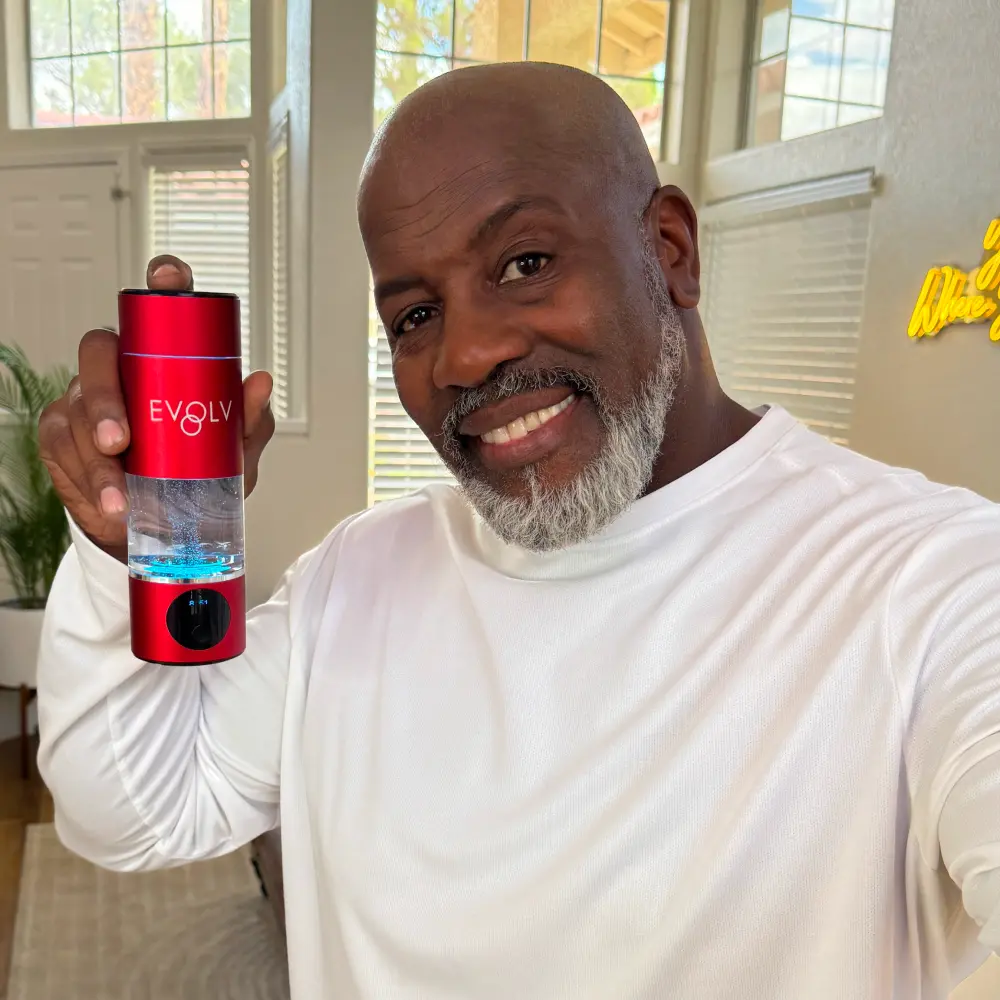 You've likely heard of H₂O, but what about H3O? While it may sound like a futuristic concept, H3O water is a term that has gained attention, raising questions about its legitimacy. Some claim it enhances hydration and offers health benefits, while others remain skeptical, questioning whether it is grounded in science or simply a marketing trend. Let's explore what H3O water really is and whether it lives up to the hype.
You've likely heard of H₂O, but what about H3O? While it may sound like a futuristic concept, H3O water is a term that has gained attention, raising questions about its legitimacy. Some claim it enhances hydration and offers health benefits, while others remain skeptical, questioning whether it is grounded in science or simply a marketing trend. Let's explore what H3O water really is and whether it lives up to the hype.
In recent years, there has been growing interest in alternative water formulations, including alkaline water, structured water, and ionized water, each promising unique advantages. H3O water falls into this category, with some suggesting it may play a role in improving hydration, balancing pH levels, and even boosting energy. But what does science say? Are there real H3O water benefits, or is it simply a clever rebranding of existing water science?
To truly understand whether H3O water is revolutionary or just another fleeting health trend, we need to explore its chemical structure, how it interacts with the body, and whether any research supports its supposed benefits. Let’s dive deeper into the H3O water mystery and uncover the truth behind the hype.
What Is H3O Water?
To answer the big question—what is H3O?—we first need to understand its chemistry. H3O, also known as hydronium, is a positively charged ion that forms when water molecules gain an extra hydrogen ion (proton). In simpler terms, it’s an acidic version of water, meaning it has a lower pH than regular H₂O. This process naturally occurs in water when acids dissolve, forming hydronium ions, which play a crucial role in maintaining pH balance and acidity in various chemical and biological reactions.
While H3O ions exist in all aqueous environments, you won’t find pure H3O water in a drinking bottle—it’s highly reactive and quickly reverts back to standard H₂O. However, some H3O water products on the market claim to harness a structured or ionized form of water that enhances hydration, boosts energy levels, and even improves health by optimizing water absorption at a cellular level. Proponents suggest that H3O water benefits may include better hydration efficiency, improved electrolyte balance, and enhanced nutrient delivery throughout the body.
But does science back up these claims? While H3O water is an interesting concept, many experts argue that the body already efficiently regulates hydration and pH levels. Moreover, research on the supposed advantages of structured or ionized water is still limited and inconclusive. So, is H3O water a breakthrough in hydration science or just another health trend? Let’s explore further.
Is H3O Water Real?
If you’ve searched for is H3O water real? or what is H30 water?, you might have come across companies marketing specialized structured or ionized water, claiming it offers enhanced hydration and health benefits. While hydronium ions (H3O⁺) do exist, they are highly reactive and cannot exist in a stable, drinkable form. Instead, in normal conditions, H3O quickly interacts with other water molecules, forming a dynamic equilibrium between H₃O⁺ and OH⁻ ions, which helps regulate pH balance in water. This means that while the concept of H3O water is intriguing, it does not remain in a separate, stable state that can be bottled and consumed.
That said, the H3O water discussion taps into a broader interest in water quality, ionization, and alternative hydration methods. Many people swear by alkaline water, hydrogen-rich water, and ionized water, claiming benefits such as better hydration, detoxification, and improved energy levels. While some of these claims have gained traction, the scientific community remains skeptical, as research on structured and ionized water is still limited and often inconclusive.
Additionally, some companies market H3O water products as being infused with a special charge or structure that allows for faster absorption and cellular hydration. However, the body already has a highly efficient system for processing and utilizing water, and there is no conclusive evidence that drinking "structured" H3O water has a superior effect compared to regular filtered water.
Ultimately, while H3O water as a concept is fascinating, it may be more of a marketing trend than a scientific breakthrough. However, the broader discussion about water purity, pH balance, and hydration science is an important one, and as research continues, we may learn more about how different water compositions affect our health.
H3O Water Benefits – Hype or Science?
If you’re wondering about H3O water benefits, some claims suggest that structured or ionized water—often referred to as H3O water—could improve hydration, support detoxification, enhance energy levels, and even promote better nutrient absorption. Proponents argue that H3O water is more bioavailable, meaning it can be absorbed by the body more efficiently, leading to faster hydration and better cellular function. Additionally, some suggest that H3O water might help balance pH levels in the body, reducing acidity and potentially improving digestion and overall well-being.
But do these benefits hold up under scientific scrutiny? The reality is that hydration depends more on overall water intake than on the structure of the water itself. The human body is incredibly efficient at absorbing and utilizing water, and there is no conclusive evidence that H3O water hydrates better than regular water. While it’s true that pH balance plays an essential role in health, the body naturally regulates its acid-base balance through the lungs and kidneys—meaning that drinking specially structured H3O water is unlikely to have a significant impact on this process.
Another common claim is that H3O water can detoxify the body more effectively. While hydration is crucial for flushing out toxins through the kidneys and liver, there is no proven advantage to drinking H3O water over regular purified or filtered water. The best way to support natural detoxification is to drink plenty of clean water, maintain a healthy diet, and avoid excessive exposure to toxins.
So, is H3O water the next big thing, or just a catchy name with clever marketing? While the science behind H3O water benefits is still evolving, one thing remains clear: staying hydrated—whether with H3O water, ionized water, or plain H₂O—is essential for overall health and well-being. Until more scientific research is conducted, the safest and most effective way to stay hydrated is to drink high-quality water in sufficient amounts daily.
Would you try H3O water for its potential benefits, or are you sticking to classic, refreshing H₂O? We’d love to hear your thoughts!
FAQs About H3O Water
1.Is H3O the same as regular water?
No, H3O water refers to hydronium ions, which make water more acidic. However, stable H3O water in bottled form doesn’t naturally exist—water always rebalances to H₂O.
2. Does H3O water have health benefits?
Some claims suggest H3O water benefits include better hydration and detoxification, but there is no strong scientific evidence supporting these claims. Staying hydrated with any clean water is beneficial for health.
3. Can you drink H3O water?
Pure H3O water (hydronium) is highly acidic and not drinkable. Some marketed H3O water products are actually structured or ionized water, which is safe to drink.
4. Is H3O water better than alkaline water?
They are very different—H3O water is acidic, while alkaline water has a higher pH. Both have different claims regarding benefits, but regular, clean water remains the best hydration choice.
5. Should I buy H3O water products?
If you’re curious about H3O water benefits, you can try structured water products, but be sure to research their claims. No water type replaces the benefits of simply drinking enough clean, high-quality water daily.
Conclusion
H3O water is an interesting concept that blends science with marketing. While hydronium ions are real, stable H3O water doesn’t exist in nature as a drinkable form. The health benefits of H3O water are still unclear, but staying hydrated with any high-quality water remains the best strategy for overall wellness.
If you’re intrigued by H3O water benefits, it’s always a good idea to research before making a purchase. At the end of the day, whether it’s H3O water, alkaline water, or simply tap water, the most important thing is to drink enough of it daily. Stay hydrated and keep questioning the science behind the latest health trends!
References
Atkins, P., & De Paula, J. (2017). Atkins' Physical Chemistry (11th ed.). Oxford University Press.
Chaplin, M. (2000). Water structure and behavior: Hydronium ions in water. Retrieved from http://www1.lsbu.ac.uk/water/hydronium.html
Khan, M. A., & Hadi, S. M. (2019). Biochemistry of water: The importance of hydronium ions. Biophysical Chemistry, 250, 106-112. https://doi.org/10.1016/j.bpc.2019.05.009
Kreuer, K. D. (2001). Proton conductivity: Mechanisms and materials. Journal of Membrane Science, 185(1), 29-39. https://doi.org/10.1016/S0376-7388(00)00634-9
Sawka, M. N., Cheuvront, S. N., & Kenefick, R. W. (2015). Hypohydration and human performance: Impact of drinking strategies. Medicine & Science in Sports & Exercise, 47(3), 657-664. https://doi.org/10.1249/MSS.0000000000000493
Szent-Györgyi, A. (1988). Bioelectronics: A study in cellular water and energy. Academic Press.
Voet, D., Voet, J. G., & Pratt, C. W. (2018). Fundamentals of Biochemistry: Life at the Molecular Level (5th ed.). Wiley.










